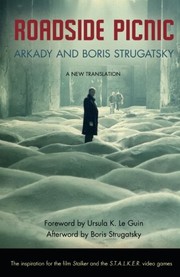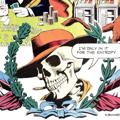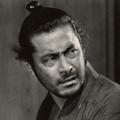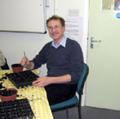A Cask of Troutwine reviewed Roadside Picnic by Борис Стругацкий
None
4 stars
I had read this right after reading another Strugatsky novel,Hard to be a God, and just as with that one, Roadside Picnic deals heavily with the ideas of humanity, and the struggle that people face. Unlike that novel, which deals with a person masquerading as a noble, this book is almost all about the common people, as seen through the character of Red Schuhart, and what they have to do to survive in a capitalist society.
The novel is about a series of areas called Zones, where the normal laws of physics don't necessarily apply, and every inch is laced with danger. Access to these area's are strictly forbidden outside of scientific excursions, but a black market pops up supplied by Stalkers, who risk life and limb to get the bizarre artifacts that are scattered about each one.
Red Schuhart is one of these Stalker's, and the book …
I had read this right after reading another Strugatsky novel,Hard to be a God, and just as with that one, Roadside Picnic deals heavily with the ideas of humanity, and the struggle that people face. Unlike that novel, which deals with a person masquerading as a noble, this book is almost all about the common people, as seen through the character of Red Schuhart, and what they have to do to survive in a capitalist society.
The novel is about a series of areas called Zones, where the normal laws of physics don't necessarily apply, and every inch is laced with danger. Access to these area's are strictly forbidden outside of scientific excursions, but a black market pops up supplied by Stalkers, who risk life and limb to get the bizarre artifacts that are scattered about each one.
Red Schuhart is one of these Stalker's, and the book follows him throughout the years as society changes and adapts to the Zones and what they can provide. The book shows how much the underclass has to sacrifice, and what ideals they may have to break, in order to provide for their families. Before asking us in one of the most gut-wrenching scenes I've ever read, "At what point does a man sell his soul?"













